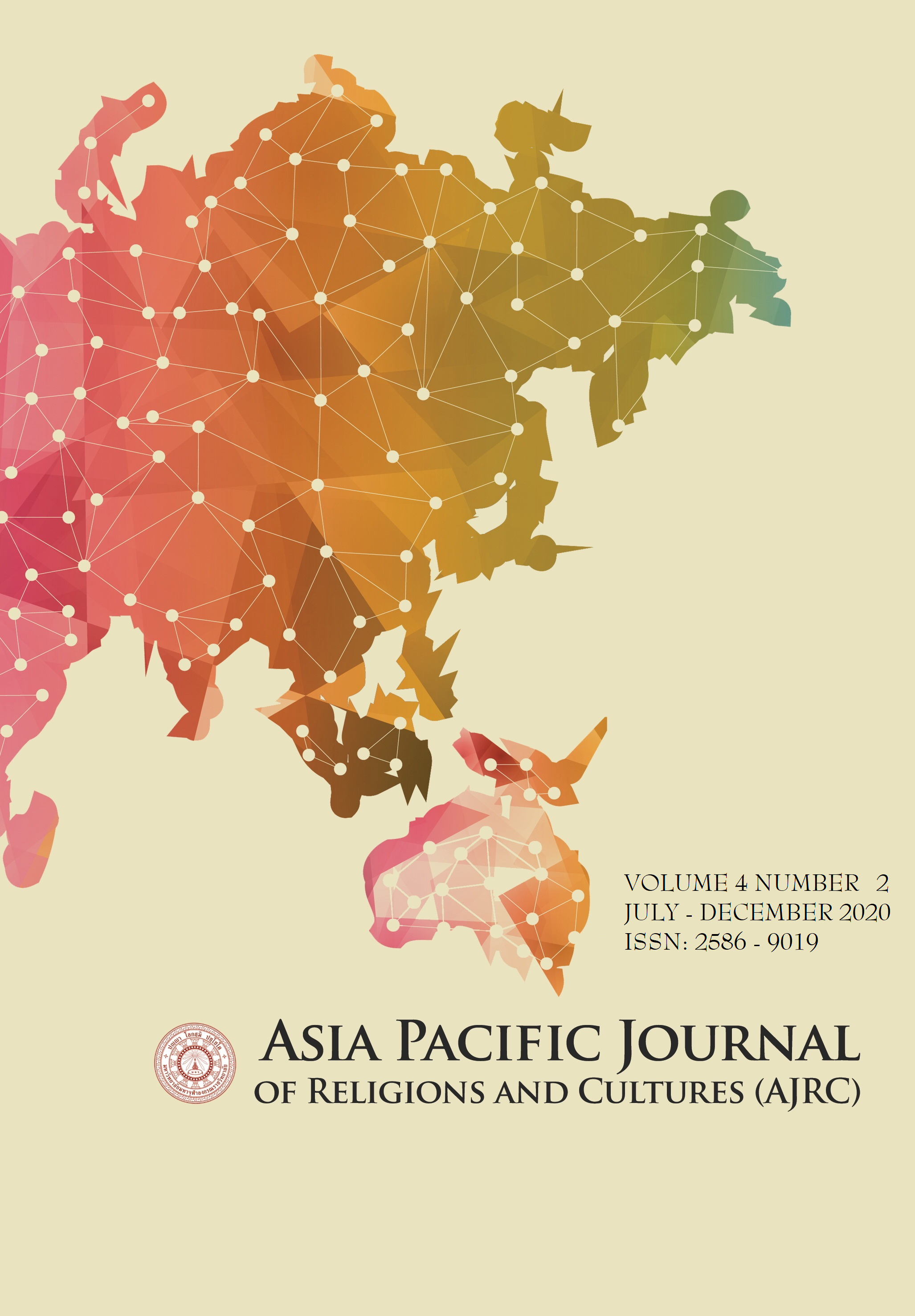Warring To Warrant World Peace: Buddhist Ethics
Main Article Content
Abstract
- Warring with “jus bellum justum” (justified and necessary wars) will instead fuel retributive extremism and miseries. “The War to End Wars” coined by H.G. Wells, Woodrow Wilson, David L. George has thus to be declined. “Si vis pacem, para bellum (if you want peace, prepare for war)” is then cautioned by Plato, Renatus, Shi Ji and Rama VI. Buddhist ethics nevertheless believes that apartheid and holocaustic warring discriminates peacefulness. Warring to warrant world peace through Buddhist ethics emerges two kinds of understanding, i.e. first, the pañca sīla codes,“Thou shalt abstain from killing beings” but authorities like policemen and military armforces exploiting lethal arms for suppressions and battles are justified and not guilty. Second, “Jus bellum justum” ethically clashes between duties of abstaining from killing with the duties of national defense, and security from threats. Had war been purposively waged for the national defense through implementing the principle of Aparihāniyadhamma 7; it will never decline but enrich prosperity, welfare and common good because in war-defense and security. It is not declaring war but defending oneself from assaults. So, it is imperative to wage wars with one’s taṇhā (lusts) and lobha (greeds); only then morality of each one would at the end warrant world peace.
Article Details
References
Vichiansingh, D. (1987). Ethical Problems Related to Warring. Bangkok: Mahachulalongkornrajavidyalaya University.
Nooreram, D. (2003). Buddhist Ethics and the Concept of Just War: a case study of scholar perspectives in the contemporary Thai social context. Master Thesis, Program of Ethics Studies, Graduate School: Mahidol University.
Thiravekin, L. (2009). Thai Politics and Democracy. Bangkok: Master Copy Company (Thailand) Limited.
Mahachulalongkornrajavidyalaya University. (1996). The Tripitaka Thai Version. The Mahachulalongkornrajavidyalaya University copy. Bangkok: Mahachulalongkorn-rajavidyalaya University Press.
Phra Brahmagunabhorn (P.A. Payutto). (1995). Abortion: how to decide and when to begin? Abortion in the Buddhist Perspective. (2nd ed.). Bangkok: Sahathammic Company Limited.
Phra Brahmagunabhorn (P.A. Payutto). (2013). Dictionary of Buddhism. 25th ed. Suan Luong, Bangkok: Pli Dhamma.
Konhjan, T. (2001). Modernity and Absolute Monarchy. Bangkok: Arts and Cultures Magazine.
Wongthamma, T. (2011). Basic Ethics: human and ideology and moral measures. Bangkok: Odeon Store Printing Office.
Brinsfield, John W. (1991). From Plato to NATO; the Ethics of Warfare; Reflections on the Just War Theory”. Military Chaplains Review.
Bury, R.G. (1968). Plato in Twelve Volumes, Vols. 10 & 11. London: William Heinemann.
Cultural China. (2018). Confucian Responses to Buddhism throughout Chinese History. Wayback Machine. 4 Mar.2010-20 No. 2018. RAC: http://history.cultural-china.com/en/165History5834.html, on 17.08.2019
Das, M. N.(1949). Glimpses of Kalinga History. Calcutta: Century Publishers.
Fiala, A. (2014). Zalta, Edward N. (Ed.). Pacifism: The Stanford Encyclopedia of Philosophy.
Galtung, J. (2008). Conflict Theory: Definitions, Dimensions, Negations, Formations. Amsterdam: Elsevier.
Guthrie, C., Quinlan, M. (2007). III: The Structure of the Tradition". Just War: The Just War Tradition: Ethics in Modern Warfare.
Mattox, John, M. (2006). Saint Augustine and the Theory of Just War. London: Continuum.
Rempel, R. A. (2003). The Collected Papers of Bertrand Russell. London: Routledge.
Roy, K. (2015). Military Manpower, Armies and Warfare in South Asia. Warfare, Society and Culture. London: Routledge.
Strauss, L., & Crapsey, J.(2012). History of Political Philosophy. Chicago: University of Chicago Press.


